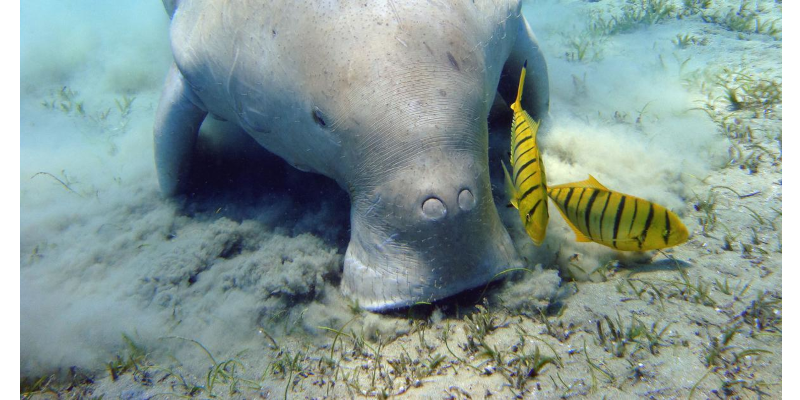Dharamshala, 26th January: The Tamil Nadu government created the country’s first dugong conservation reserve, including 500 square kilometers of biodiversity-rich waters in the Gulf of Mannar and Palk Bay, where the marine mammal can be found. The reserve, which was announced in September of last year, is located between Adirampattinam and Amapattinam, off the coast of southeast India.
The International Union for Conservation of Nature’s Red List of Threatened Species lists the dugong as vulnerable, while other studies reveal that its conservation status varies greatly across its range.
Only about 200-250 dugongs exist in the oceans, according to studies by the Wildlife Institute of India, with 150 of them spotted in the Palk Bay and Gulf of Mannar, off the coast of Tamil Nadu, which is now the world’s most significant surviving natural habitat for dugongs. At least 75 dugongs have been discovered in the Andaman and Nicobar Islands, and 50 have been spotted near the Gulf of Kutch in Gujarat, according to sources.
The Gulf of Mannar and Palk Bay, according to Supriya Sahu, additional chief secretary of the Tamil Nadu government in charge of environment, climate change, and forests are habitats for a diverse range of marine species, including rare fishes, sea turtles, seahorses, and sea cucumbers. Apart from damaging fishing methods and industrial pollutants, the region is currently threatened by climate change.
The dugong is currently the world’s only herbivorous marine animal, feeding solely on seagrass. It can consume up to 40 kg of seagrass each day, making the plant essential to the animal’s existence.
Seagrass beds along the continental shelf safeguard the fragile marine biodiversity of the Gulf of Mannar and Palk Bay, off the coast of Tamil Nadu in southeast India, and sustain the health of coastal ecosystems in the Bay of Bengal, off the eastern coast of India, in addition to supporting dugongs.
Traditional fisher villages in the Gulf of Mannar and Palk Bay rely on seagrass beds for their livelihood. According to assistant chief secretary Sahu, the social-ecological system that exists in this biodiversity-rich and productive coastal region will be documented and regarded as one of the important components in the formulation of the dugong conservation action plan.







Leave a Reply